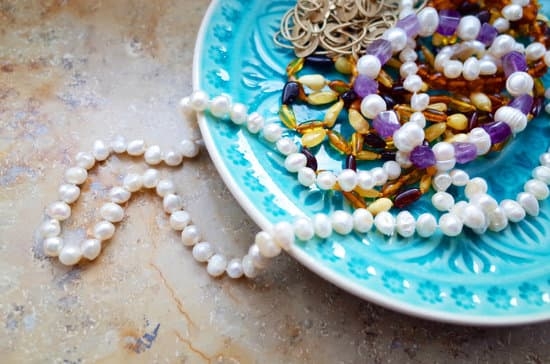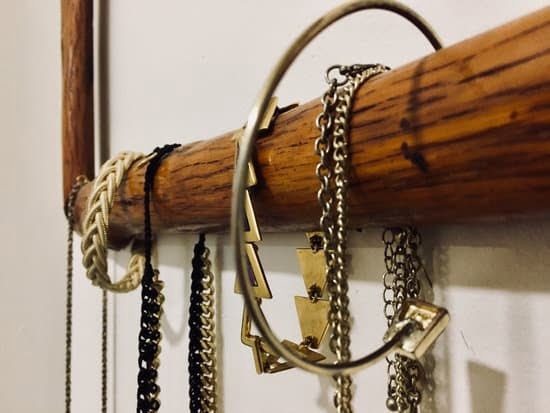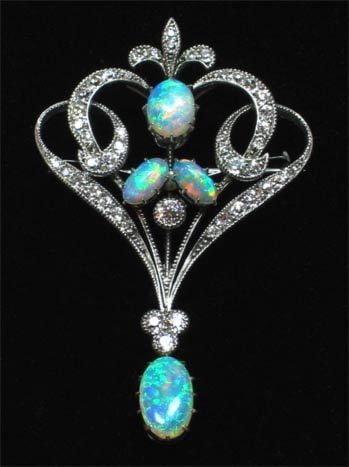Do you need something to work in fine jewelry? Working in the fine jewelry industry requires a combination of talent, skill, and knowledge. There are several essential elements to consider when pursuing a career in this specialized field. From the importance of training and education to the necessary skills, tools, and materials, this article will provide an overview of what it takes to succeed in fine jewelry.
Training and education play a crucial role in preparing individuals for a career in the fine jewelry industry. Whether aspiring professionals pursue formal education programs or opt for apprenticeships and internships, acquiring the necessary knowledge and expertise is essential. Aspiring professionals must understand the significance of continuous learning and staying updated on the latest developments within the industry.
In addition to training and education, individuals interested in working in fine jewelry must possess certain essential skills to succeed. These skills include attention to detail, creativity, artistic ability, and precision. Professionals working in this field must also have excellent hand-eye coordination, as well as strong communication and customer service skills. These qualities are vital for creating exquisite pieces of fine jewelry and providing exceptional service to clients.
Essential Skills Needed to Succeed in the Fine Jewelry Industry
To succeed in the fine jewelry industry, individuals must possess a set of essential skills that will enable them to excel in this competitive field. Whether you’re interested in designing, crafting, or selling fine jewelry, certain skills are crucial for success. Here are some of the essential skills needed to thrive in the fine jewelry industry:
- Attention to Detail: Working with precious metals and gemstones requires meticulous attention to detail to ensure precision and quality in all aspects of jewelry making.
- Creativity: Whether you’re a designer or a craftsman, creativity is essential in creating unique and appealing jewelry pieces that stand out in the market.
- Manual Dexterity: Fine jewelry work often involves intricate tasks such as setting gems, soldering metal parts, and polishing finished pieces, requiring excellent manual dexterity.
- Knowledge of Gemology: Understanding different types of gemstones, their characteristics, and value is crucial for anyone working with fine jewelry.
These are just a few examples of the essential skills required to succeed in the fine jewelry industry. While some individuals may naturally possess these qualities, others can develop them through training and practice. Whether you’re considering a career as a jeweler, designer, or sales professional within the industry, honing these skills will be instrumental in your success.
Tools and Materials Required to Work in Fine Jewelry
When it comes to working in fine jewelry, having the right tools and materials is essential for success in the industry. Whether you are a designer, bench jeweler, or appraiser, the quality of your work depends greatly on the tools you use and the materials you work with.
Essential Tools for Fine Jewelry Work
Some essential tools for working in fine jewelry include precision tools such as pliers, cutters, files, and mandrels. These tools help artisans manipulate metal and other materials with precision and accuracy. In addition to precision tools, a jeweler’s bench with proper lighting and magnification is crucial for detailed work.
Quality Materials for Fine Jewelry
Fine jewelry professionals must also have access to high-quality materials such as precious metals (gold, silver), gemstones (diamonds, rubies, emeralds), pearls, and other components that are used in creating exquisite jewelry pieces. The quality of these materials directly impacts the overall value and appearance of the final product.
Safety Equipment
Lastly, safety equipment such as protective eyewear and gloves is essential when working with power tools and hazardous substances commonly used in jewelry making. Providing a safe work environment should always be a top priority for anyone working in fine jewelry.
Certification and Licensing Requirements for Fine Jewelry Professionals
When it comes to working in the fine jewelry industry, having the right certification and licensing is crucial. These credentials not only demonstrate your expertise and knowledge, but they also add credibility to your work. Here are some of the certification and licensing requirements that you may need to pursue a career in fine jewelry:
- Gemological Institute of America (GIA) Certification: The GIA offers a range of courses and certifications in gemology, jewelry design, and more. Obtaining a GIA certification can open up many doors in the fine jewelry industry.
- Apprenticeship Completion: Some states or employers may require you to complete an apprenticeship program under the guidance of an experienced jeweler before becoming licensed.
- Licensing as a Gemologist: Depending on your specific role within the fine jewelry industry, you may need to obtain a license as a gemologist from a recognized organization or authority.
Do you aspire to become a reputable jeweler or gemologist? In addition to these credentials, it’s essential to stay updated with any new regulations or requirements within the industry.
Ultimately, obtaining the necessary certifications and licenses not only enhances your skill set but also increases your marketability as a professional in the field of fine jewelry. It sets you apart from others and gives clients confidence in your abilities.
Job Opportunities in the Fine Jewelry Industry
Working as a Jewelry Designer
One of the most exciting job opportunities in the fine jewelry industry is working as a jewelry designer. This role involves creating unique and beautiful pieces of jewelry, often using precious stones and metals. Jewelry designers need to have a keen eye for detail, creativity, and an understanding of current fashion trends. They may work for established jewelry companies or as independent designers.
Jewelry Sales and Marketing
Another important job opportunity in the fine jewelry industry is in sales and marketing. Professionals in this role are responsible for promoting and selling fine jewelry through various channels such as retail stores, online platforms, or at trade shows. Strong communication skills, product knowledge, and an understanding of customer preferences are essential for success in this field.
Gemology and Appraisal
For those with a passion for gemstones and their value, a career in gemology or jewelry appraisal may be a perfect fit. Gemologists specialize in identifying and evaluating gemstones based on their quality and characteristics, while appraisers determine the value of fine jewelry pieces for insurance or resale purposes. To excel in these roles, individuals need extensive knowledge of gemstones, as well as specialized training and certification.
Overall, there are diverse job opportunities within the fine jewelry industry for individuals with a variety of skills and interests. Whether one’s talents lie in design, sales, gemology, or another aspect of the field; there are numerous paths to pursue within this glamorous and intricate industry. Do you need something to work in fine jewelry? There’s certainly a niche waiting to be claimed.
Challenges and Rewards of Working in Fine Jewelry
Working in the fine jewelry industry comes with its own set of challenges and rewards. One of the main challenges is the level of precision and attention to detail required in creating fine jewelry pieces.
Jewelers must possess a steady hand and an eye for perfection, as even the smallest mistake can affect the overall quality of a piece. This level of precision also means that working in fine jewelry can be time-consuming, requiring patience and dedication to produce high-quality work.
On the other hand, one of the most rewarding aspects of working in fine jewelry is the ability to create timeless pieces that hold sentimental value for individuals. Whether it’s crafting an engagement ring or repairing a family heirloom, working in fine jewelry allows professionals to be part of significant moments in people’s lives. The skill and craftsmanship involved in creating these pieces also provides a sense of fulfillment and pride in one’s work.
Another challenge facing individuals working in fine jewelry is staying up-to-date with evolving trends and technologies within the industry. With advancements in design software, 3D printing, and new materials, jewelers must continuously adapt and learn to remain competitive. However, this also presents opportunities for personal growth and professional development within the field.
| Challenges | Rewards |
|---|---|
| Level of precision and attention to detail | Creating timeless pieces with sentimental value |
| Time-consuming nature of creating high-quality work | Sense of fulfillment and pride in one’s craftsmanship |
| Staying up-to-date with evolving trends and technologies | Opportunities for personal growth and professional development |
Networking and Professional Development in the Fine Jewelry Field
Working in the fine jewelry industry often requires a strong network of professional contacts and ongoing professional development. Whether you are a jewelry designer, gemologist, appraiser, or retail salesperson, networking can open up new opportunities for career advancement and collaboration. Attending industry events, joining professional organizations, and connecting with colleagues can provide valuable insights and potential partnerships.
Professional development is also crucial for staying updated on the latest trends, technology, and industry standards. Many professionals in the fine jewelry field pursue ongoing education through workshops, courses, and seminars to enhance their skills and knowledge. In addition to honing technical expertise, staying current with market trends and consumer preferences is essential for success in this competitive industry.
Lastly, cultivating a positive reputation within the fine jewelry community is key to building a successful career. Demonstrating professionalism, integrity, and a commitment to quality workmanship can help establish trust with clients and industry peers. By participating in community events, charity auctions, or educational outreach programs related to fine jewelry, professionals can raise their profile while giving back to their community.
| Importance of Networking | Benefits of Professional Development |
|---|---|
| Opens up new opportunities | Enhances skills and knowledge |
| Provides potential partnerships | Keeps current with market trends |
| Builds a strong support system | Gains industry insight |
How to Start Your Career in Fine Jewelry
In conclusion, the world of fine jewelry offers a multitude of job opportunities for individuals with the right training, skills, and dedication. From becoming a skilled bench jeweler to working in sales and marketing for high-end jewelry brands, there are numerous paths to explore within this industry. However, the first step to starting a successful career in fine jewelry is obtaining the necessary education and experience.
Training and education play a crucial role in preparing individuals for the demands of the fine jewelry industry. Whether it’s learning about gemstones and precious metals or mastering advanced techniques in jewelry making, formal education programs, internships, and apprenticeships provide aspiring professionals with the essential skills and knowledge needed to succeed in this competitive field.
Moreover, pursuing certification and obtaining any required licensing demonstrates a commitment to professionalism and can open doors to more job opportunities. Building a strong network within the industry through professional development events also fosters growth and can lead to valuable connections that can further one’s career prospects. Overall, by acquiring the right tools, skills, qualifications, and connections, individuals can embark on a rewarding journey into the world of fine jewelry.
Frequently Asked Questions
How Do I Get Into the Fine Jewelry Industry?
Getting into the fine jewelry industry typically requires a combination of education and experience. One common path is to complete a degree or certification program in gemology, jewelry design, or a related field.
Networking with professionals in the industry and gaining hands-on experience through internships or apprenticeships can also be beneficial. Keeping abreast of current trends, understanding different types of settings and precious metals, and developing an eye for quality craftsmanship are all valuable skills for entering the fine jewelry industry.
What Experience Is Required to Get Into Fine Jewelry?
While formal education in gemology, jewelry design, or a related field can be advantageous, it is not always required to enter the fine jewelry industry. Many individuals gain experience through on-the-job training, apprenticeships, or entry-level positions within jewelry stores or with experienced jewelers.
Having a strong knowledge of diamonds and gemstones, understanding the basics of jewelry manufacturing processes, and possessing good communication and customer service skills are often important qualifications for those seeking to enter the world of fine jewelry.
What Do I Need to Know to Work in a Jewelry Store?
To work in a jewelry store, having a good understanding of different types of gemstones and precious metals is essential. It’s important to familiarize oneself with various styles and designs of fine jewelry as well as being knowledgeable about different types of settings and cuts for diamonds and other gemstones. Strong interpersonal skills are also crucial when working in a retail environment.
Being able to effectively communicate with customers, explain product features, handle sales transactions, and provide excellent customer service are all key components of working in a jewelry store. Additionally, having some knowledge of basic repair techniques or custom design processes can be beneficial when interacting with customers who may have specific requests or questions about their fine jewelry pieces.

Welcome to my jewelry blog! My name is Sarah and I am the owner of this blog.
I love making jewelry and sharing my creations with others.
So whether you’re someone who loves wearing jewelry yourself or simply enjoys learning about it, be sure to check out my blog for insightful posts on everything related to this exciting topic!





